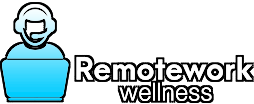
In the fast-paced digital era, virtual assistants (VAs) have become indispensable allies for businesses and entrepreneurs alike. But while many see VAs as short-term solutions for tackling immediate tasks, there’s a hidden gem in building long-term partnerships with them. Of my own clients, one has been with me for over 27 years, another for about 26 years, and still another for over 21 years. These long-term clients are in addition to the numerous part time / short-term clients that round out my busy practice.
1. Deep Understanding of Your Business
When a virtual assistant sticks with you over time, they develop an insider’s view of your business. They don’t just know your preferences—they anticipate them. Whether it’s your preferred communication style or the tone of your email drafts, a long-term VA evolves into an extension of you. Need your favorite coffee shop included in your travel itinerary? They’re already on it.
2. Boosted Productivity
The longer you work together, the less time you spend explaining or correcting. A long-term VA becomes fluent in your workflow, streamlining tasks and catching issues before they arise. It’s like having a co-pilot who’s been flying the same route with you for years—they know the skies as well as you do.
3. Enhanced Loyalty and Trust
Consistency breeds trust. Over time, a virtual assistant transitions from just being “someone you hire” to a trusted partner who’s invested in your success. This loyalty adds an extra layer of dedication and reliability to the work they do for you. It’s not just about completing tasks—it’s about building a relationship.
4. Flexibility and Growth
Long-term relationships with VAs create room for mutual growth. As they become more skilled in their role, they can take on more complex projects or adapt to new tools and systems. Their evolving expertise can match the growing needs of your business, making them an invaluable asset.
5. Consistency and Brand Voice
Having a familiar VA ensures consistency across your communications, content, and brand image. They learn the nuances of your messaging, so every email, social media post, or customer interaction reflects your brand’s personality. This is especially valuable for entrepreneurs and small businesses looking to establish a strong identity.
6. Cost Efficiency Over Time
While there’s always an initial investment in training and onboarding a VA, the payoff comes as they grow with your business. Long-term VAs reduce the need for constant retraining or onboarding of new hires. Plus, they’re likely to suggest optimizations that save you both time and money.
Think of a long-term virtual assistant as more than just a helping hand—they’re a collaborator, confidant, and cheerleader for your success. It’s a partnership that evolves and thrives, allowing you to focus on big-picture goals while they handle the details like a pro.
So, if you’ve found a VA who ticks all the boxes, don’t let them go. Nurture that relationship, and you’ll soon realize you’re not just hiring help—you’re gaining a teammate.
What would you love to tackle with a long-term VA partnership? Let’s keep the ideas flowing!



